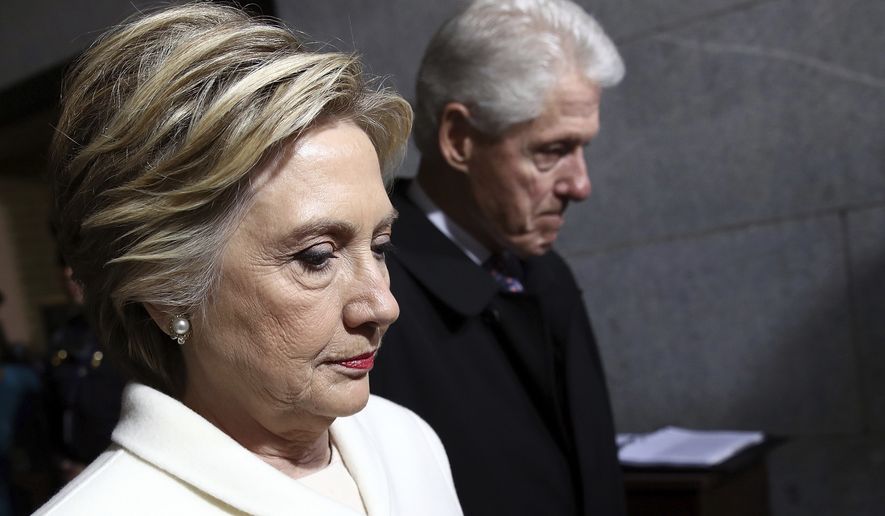OPINION:
Sensations that explode with a flash and a bang seize public attention, but the echo doesn’t last forever. Charges of Russian collusion in the 2016 presidential election that lit up the night sky in the spring are fading now with the colors of autumn. But details emerging from cracks and crevices of the Obama administration demand attention.
Credible news accounts detail how a Kremlin-linked nuclear energy company called Rosatom sought ownership of Uranium One, a Canadian mining company with rights to American uranium. The deal was completed in 2010 following approval of the nine-member Committee on Foreign Investment in the United States, of which Hillary Clinton, the secretary of State, was a member. Later, her husband Bill was invited to make a speech in Moscow for $500,000, paid by a bank with a financial interest in Rosatom. The Clinton Foundation eventually received millions of dollars from other Russians with connections to the deal. It’s funny how wheels can spin within wheels within wheels.
The appearance of a quid-pro-quo is an obvious cause for concern and worthy of an inquiry every bit as thorough as the one Robert Mueller says he is conducting into allegations that Donald Trump’s campaign collaborated with Russians. “I think we need a special counsel to investigate the Uranium One episode where thousands of dollars were given to the Clinton Global Fund and to former President Bill Clinton from groups tied to Russia,” says Sen. Lindsey Graham, South Carolina Republican.
Equally suspicious is why the Obama administration would approve the sale of 20 percent the nation’s supply of uranium, a regulated commodity with obvious national security applications, to an adversary when the United States must import 90 percent of its uranium to supplement its own limited domestic resources. The Democrats have been shouting from the housetops that we’re supposed to be suspicious of the Russians; why did Mr. Obama and Mrs. Clinton, prominent now among the housetop shouters, sleep through this?
John Solomon and Alison Spann at The Hill newspaper looked behind the curtain and found that in 2012 the Nuclear Regulatory Commission (NRC) amended an existing export license to enable a third-party trucking company to transport U.S. yellowcake, the ore from which uranium is extracted, to Canada, from where it was shipped to Europe and Asia. That’s apparently one way to ship uranium abroad without an export license.
In fact, a strong anti-nuclear streak ran through the Obama-era NRC chaired by Gregory Jaczko. As an aide to Harry Reid, a member of the Senate at the time, he was instrumental in keeping the door locked on the completed but unlicensed Yucca Mountain Nuclear Waste Repository in Nevada. In 2012, Mr. Jaczko cast the only dissenting vote against construction of two nuclear power reactors in Georgia, the first in 30 years.
In 2103, following the Fukushima Dai-ichi accident in Japan in 2011 and his resignation from the NRC in 2012, Mr. Jackzko told the Institute of Electrical and Electronics Engineers: “The industry is going away. In 20 or 30 years we’re going to have very few nuclear power plants in this country — that’s just a fact.”
Chipping away at the nation’s nuclear assets may have seemed a smart move in the Obama administration.
If Mrs. Clinton had succeeded Mr. Obama, selling off the nation’s raw nuclear material to Russian interests as part of a denuclearization scheme might not have raised concerns. But she didn’t succeed Mr. Obama. The nation deserves to know whether national security was compromised by the uranium deal, and whether the Clintons profited from it.




Please read our comment policy before commenting.